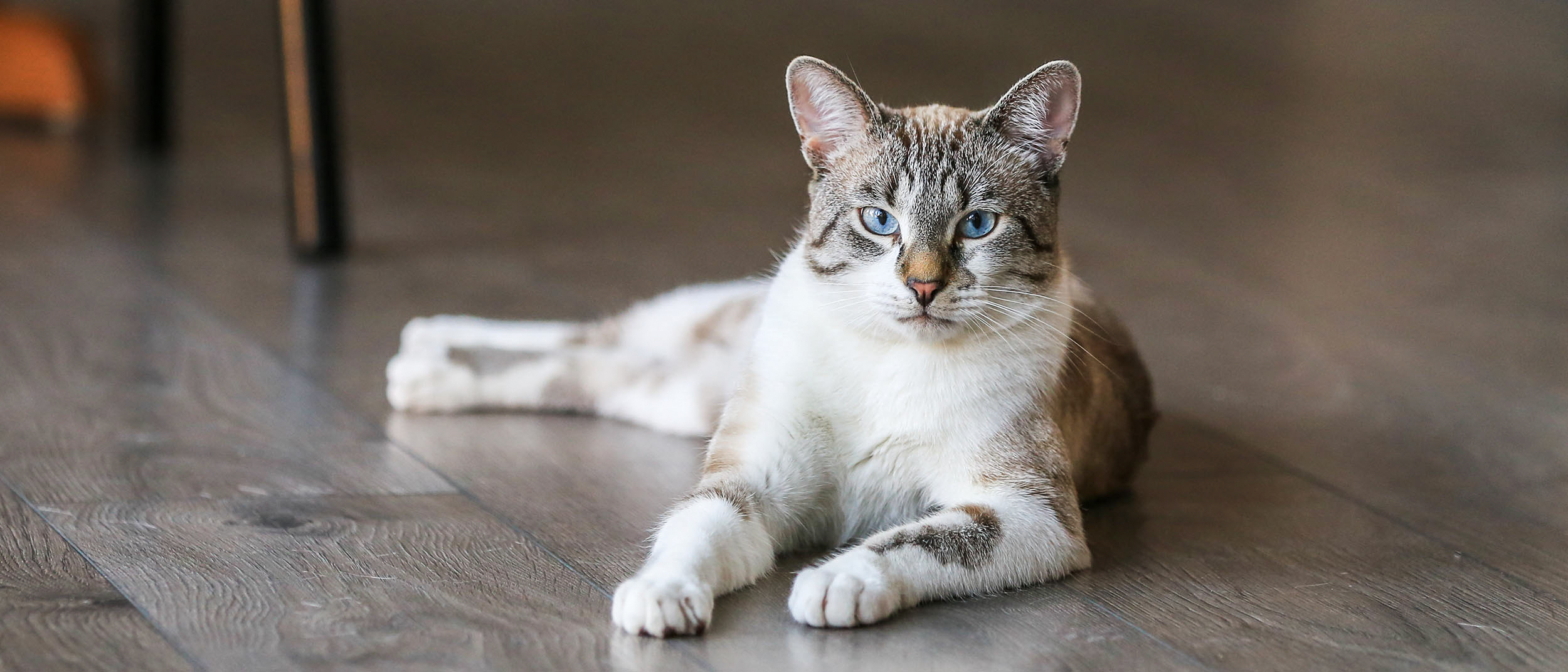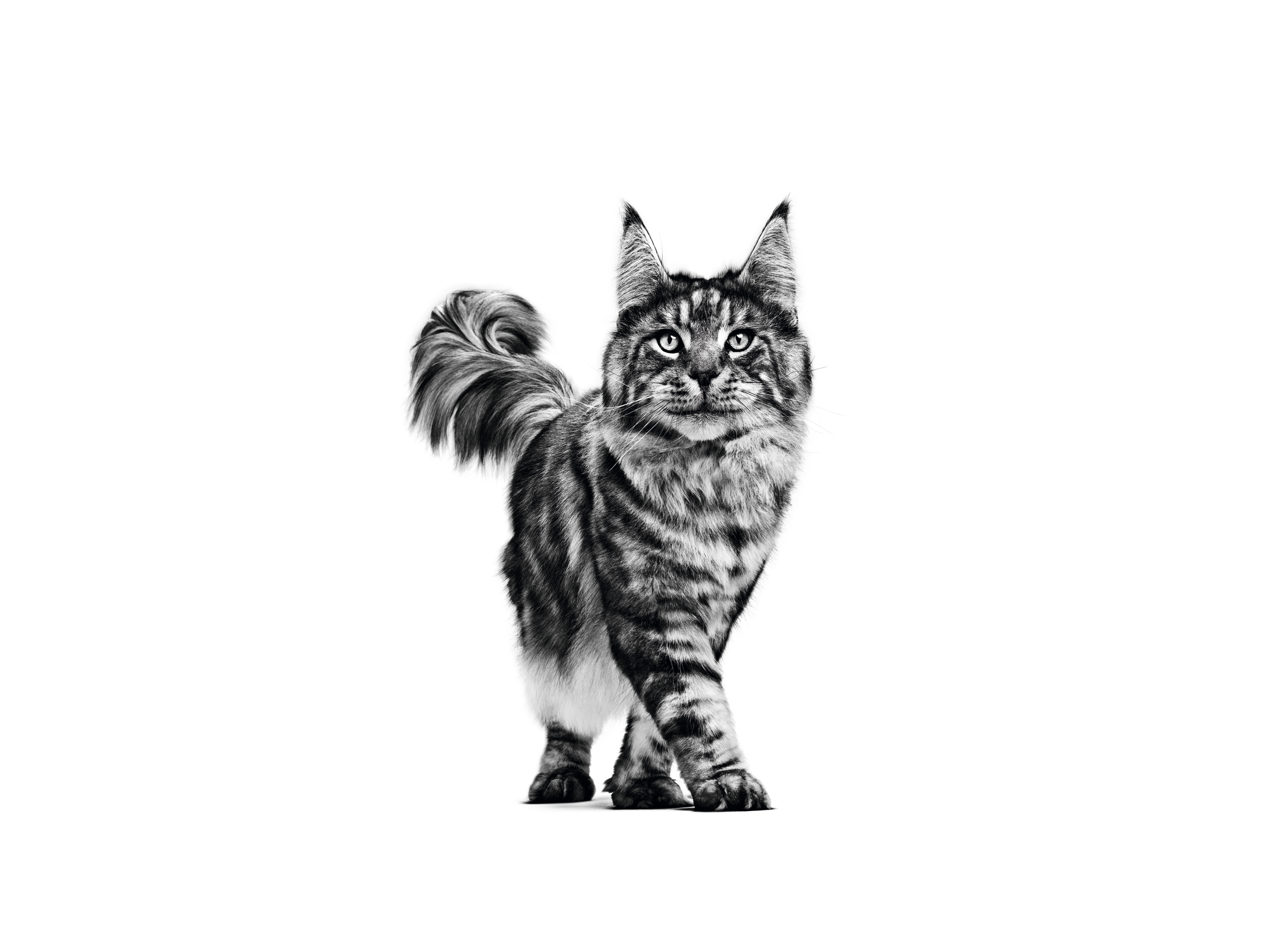Troubles urinaires chez le chat

La maladie des voies urinaires inférieures des félidés ou syndrome urologique félin (ou SUF) est une affection qui touche les chats du monde entier et n’a souvent pas de cause secondaire identifiable. Elle peut avoir de graves répercussions sur la santé de votre animal de compagnie. Il est donc important que vous sachiez reconnaître les symptômes de cette maladie, afin de bénéficier des conseils avisés de votre vétérinaire le plus tôt possible.
Les causes des troubles urinaires chez le chat
Le système urinaire du chat peut être source d'inflammation ou d'obstructions. Des minéraux se cristallisent jusqu'à former des calculs capables d'irriter le système urinaire et d'empêcher l'évacuation de l'urine. Les chats âgés qui urinent fréquemment peuvent également souffrir d'insuffisance rénale chronique ou d'autres maladies systématiques.
Les symptômes des problèmes urinaires chez le chat
Lorsque votre chat présente un problème urinaire, son comportement quand il urine change. Il urine peu et plus souvent ou il ne parvient plus à uriner du tout. Il a l'air tendu ou montre des signes de douleur lorsqu'il urine et maintient une position de miction plus longtemps que d'habitude. Son urine peut avoir une couleur rosée à cause de la présence de sang. À d’autres moments, il peut lécher ou nettoyer de manière excessive la zone génitale, manifester une perte d’appétit ou d’autres changements comportementaux.

Is my cat at risk of a urinary problem?
Overweight or obese cats and those living a sedentary lifestyle are more at risk of urinary problems than cats of a healthy weight and active lifestyle. Older cats are also more prone to chronic kidney disease and other systematic illness like endocrine diseases.
There have been suggestions that cats under significant stress are more likely to have urinary system issues. Stress can include new additions to the house, moving, changes in diet, a poorly-placed litter tray or one that is difficult to access, and living in a multiple animal household. If a cat and its owner have a strong relationship, the cat can even pick up on an owner’s stress, which can result in health problems.
Treatments for cats’ urinary problems
It’s crucial to take your cat to the vet if you notice any of the symptoms outlined above, as your vet will be able to identify the issue and provide the best treatment possible.
However, you can also take action to maintain your cat’s urinary health through its lifestyle and diet. Cats are naturally disinclined to drink lots of water – they’re descended from desert-dwelling mammals who wouldn’t be able to access water regularly – but water is important to keep their urinary system healthy. Increasing water intake can help encourage urination and urine dilution to help decrease the risk of crystallisation.
You can encourage your cat to drink more water by placing multiple bowls round the house, and avoiding placing it next to food, litter trays or busy locations. Keep it at room temperature and fill the bowl to the brim so it’s easy to access. Running water, like a dripping tap or water fountain, can also be very appealing.
Your cat’s diet can also contribute to their urinary health; as certain diets, dry or wet, can help increase water intake.
Urinary problems are unfortunately common in cats, but with the right treatment as recommended by your vet you’ll be able to support their health through diet, lifestyle and medication when necessary.
Articles Liés

Trouver un vétérinaire
Vous vous posez des questions sur la santé de votre chat ? Consultez un vétérinaire pour obtenir les conseils d'un professionnel.
Aimer et partager cette page